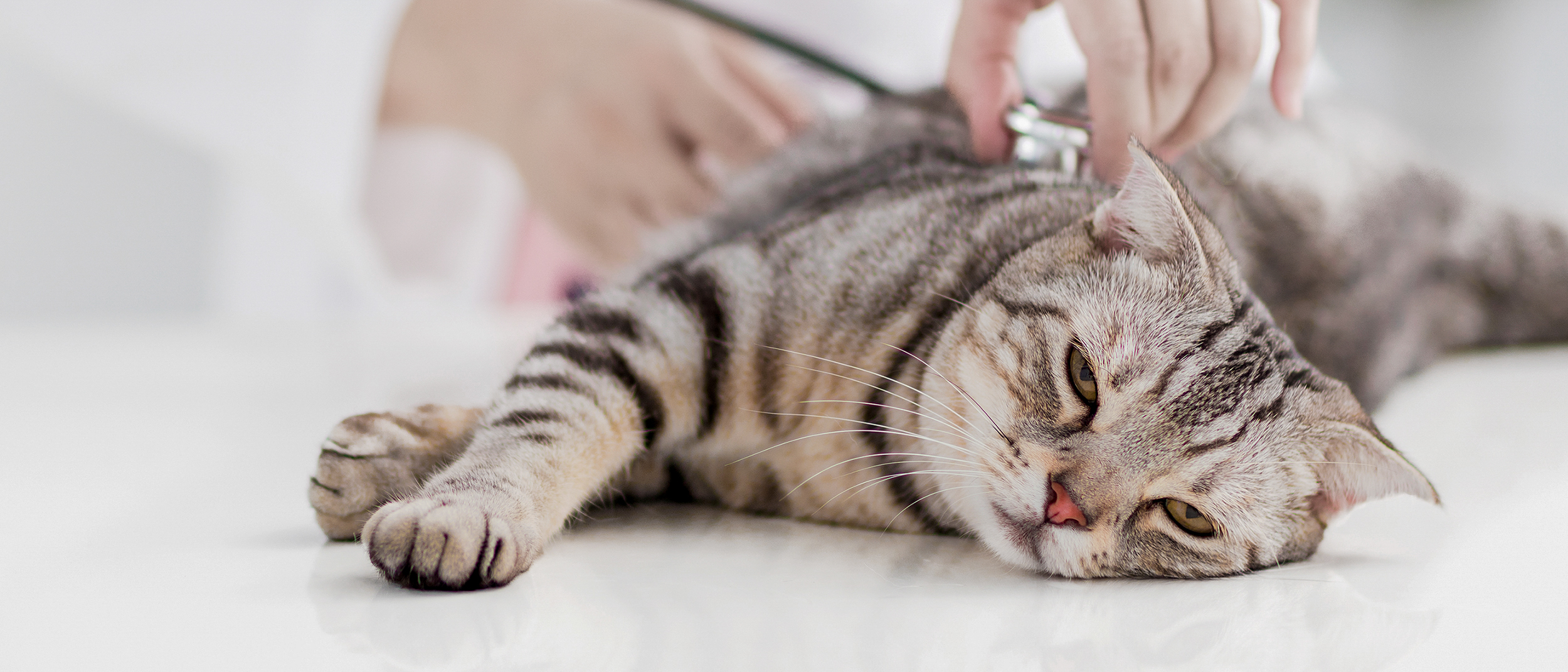Internal parasites in cats

Kittens will suffer from several specific internal parasites due to their immune system still developing.
There are two types of internal parasites that your kitten may be susceptible to, specifically:
- Protozoa - Tritrichomonas fetus – an intestinal parasite that causes a long-term, foul-smelling diarrhea
- Worms
What are protozoa?
Protozoa are single-celled organisms that can cause diarrhea.
Kittens will mainly suffer from two specific types of micro-organisms, with both being responsible for severe diarrhea and incomplete digestion which can potentially lead to dehydration and weight loss. They are:
- Giardia – microscopic protozoa which fix themselves onto the mucous membrane of the small intestine
- Coccidia – ingested by swallowing cysts present on the ground at the same time as their prey, especially mice
Some of these parasites cope extremely well in specific environments and are even resistant to moisture.
How can a cat become infected by protozoa?
A cat or kitten can become infected in one of the following ways:
- By eating the infective form of the parasite – in the form of a cyst
- By grooming or licking fur contaminated with faeces
- Sharing dirty litter trays
- Eating something contaminated with faeces
Symptoms of protozoa in cats
Only your vet can identify these parasites and prescribe the appropriate treatment. That being said, infected cats my present a number of symptoms to be aware of, including:
- Diarrhea
- Bloody stool
- Swelling and redness around the anus
- Mucus or oocysts present in the faeces
If you are concerned about your cat as they’re showing any of the above symptoms, always make sure you take them to the vet.
How to treat protozoa in cats
The vet will prescribe oral medication to combat the parasites.
Worms
Worms are parasites that will infest the intestines of a cat or kitten.
There are two types of worms commonly found in cats:
- Round worms: These worms are in the kitten’s small intestine, where they form balls and can cause intestinal obstructions.
- Tape worms: Tape worms fix onto the walls of the intestine and cause bloating, diarrhea and sometimes damage to the coat. Their presence can be detected in the stool. They look like grains of rice.
How can a cat become infected by worms?
Infestation can vary between each type of worm, however the most common way a cat or kitten will get worms is by coming into contact with eggs or faeces from another infected cat.
Some outdoor cats may hunt rodents and become infected by worm larvae living in the animal's tissue.
Litters of kittens can develop worms if their mother is infected. This occurs through nursing, when worm larvae passes to the kittens through their mother's milk.
Symptoms of worms in cats
It's impossible to tell if a cat or kitten has worms just by looking at them, however, there are a number of symptoms that may accompany a worm infestation to be aware of:
- Diarrhea
- Weight loss
- Dry or coarse fur
- Vomiting
- Blood in the stool
- A bloated abdomen
- Lethargy
- Worms visible in stool or around the anus
Treatment and prevention of worms in cats
Your cat or kitten should receive regular deworming treatments during their initial programme of vaccination.
Your vet will make specific recommendations for routine deworming based on your cat’s lifestyle, focussing specifically on whether they go outdoors and if they’ll come into contact with other cats.
To ensure your kitten stays healthy while their immune system develops, it’s important to speak to your vet about both their vaccination schedule and any treatment plans for internal parasites.
Related Articles
Find a vet
If you have any concerns about your cat’s health, consult a vet for professional advice.
Tailored nutrition for your kitten
Nutritional formulas that help to build your kitten's natural defences, support healthy growth, and aid in digestive system development.
Like & share this page